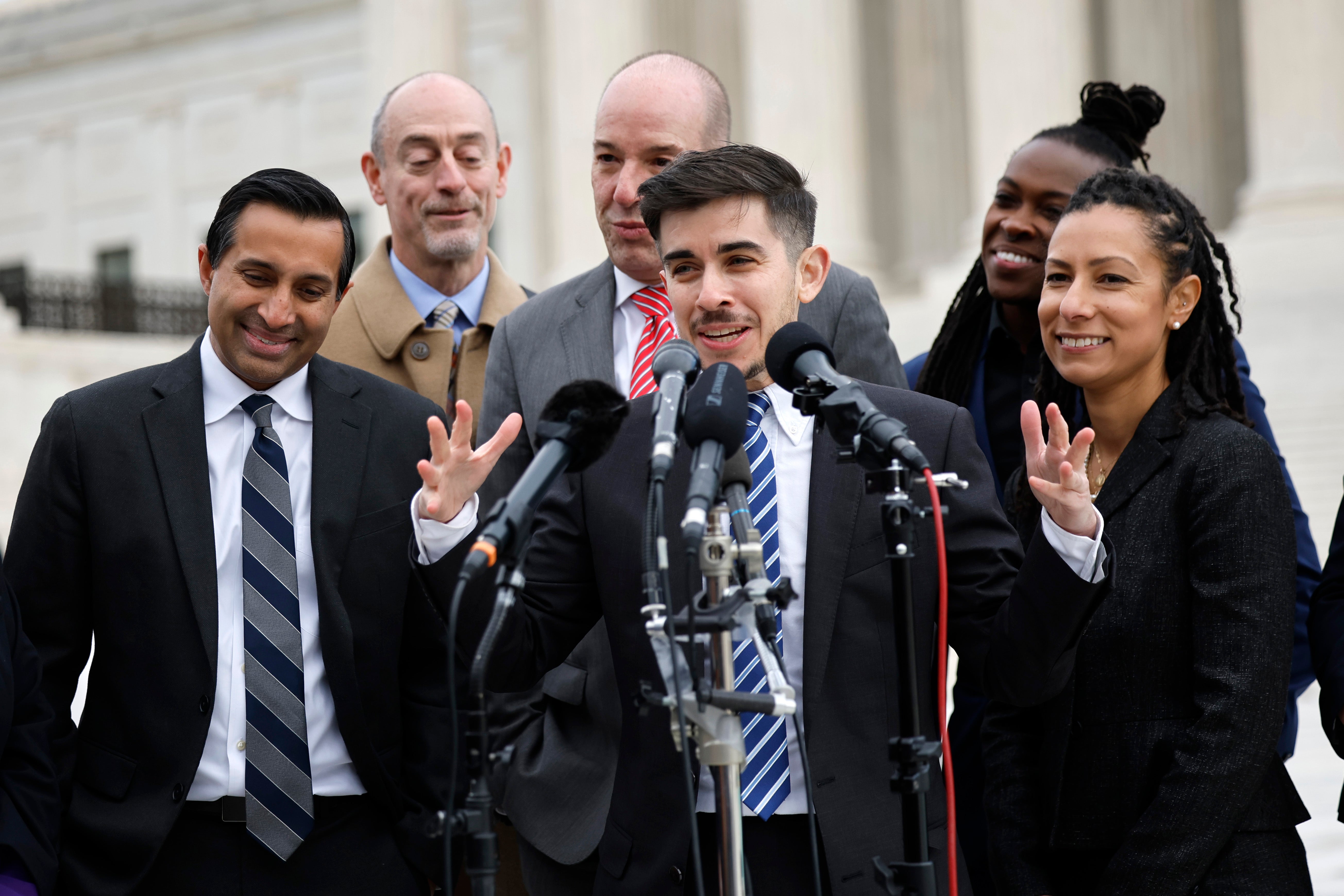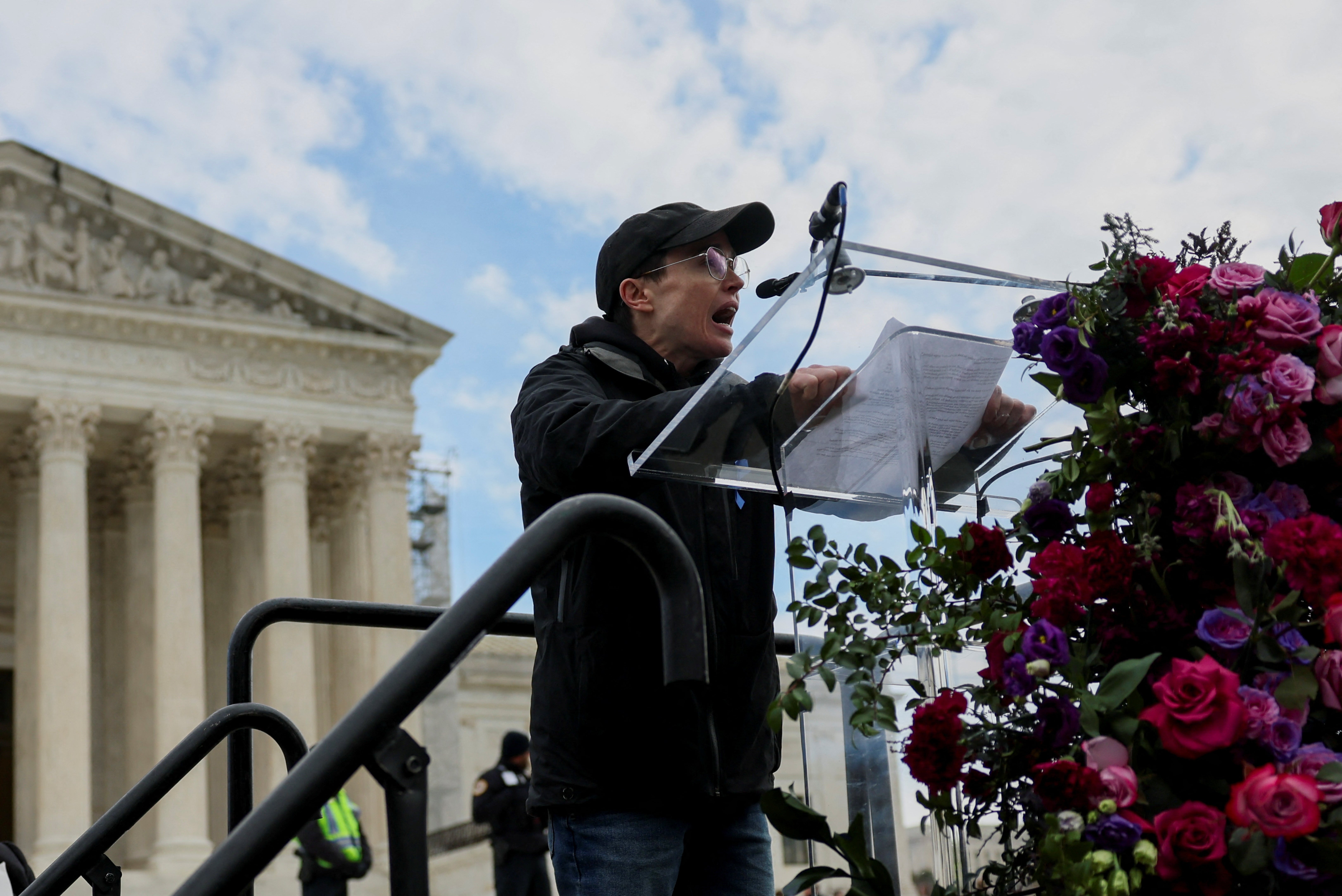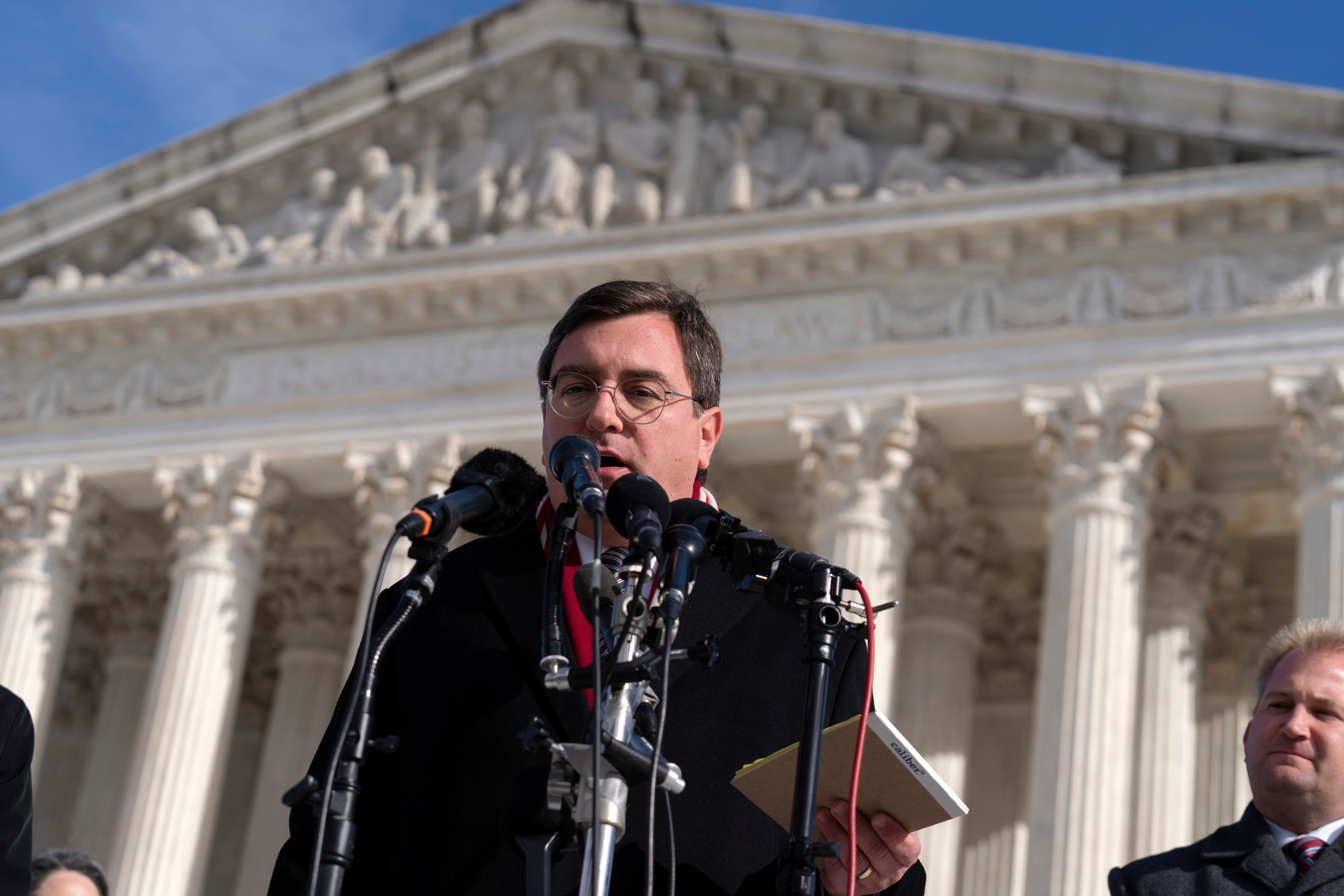Justice Alito spars over trans rights with first openly trans attorney at the Supreme Court
The court’s liberal justices fear conservatives are ‘undermining the bedrock’ of discrimination protections
The Supreme Court’s conservative majority appears prepared to uphold Tennessee’s law banning gender-affirming healthcare for transgender minors, after more than two hours of wide-ranging arguments and questions on whether trans people can be constitutionally protected from discrimination.
Justice Samuel Alito grilled ACLU attorney Chase Strangio, the first-ever openly trans attorney to present at the high court, to repeatedly cast doubt on whether being transgender is “immutable” and thus protected by anti-discrimination laws.
“I think that the record shows that the discordance between a person’s birth, sex and gender identity has a strong biological basis and would satisfy an immutability test,” Strangio replied.

Justices have been asked to decide whether barring trans kids from medically recommended healthcare qualifies as unconstitutional sex discrimination under the 14th Amendment’s equal protection clause.
During Wednesday’s oral arguments in United States v Skrmetti, several conservative justices suggested they should leave a decision on standards for trans healthcare up to individual states, echoing similar arguments from the landmark ruling that revoked a constitutional right to abortion care.
“The Constitution leaves that up to the people’s representatives, rather than to nine people, none of whom is a doctor,” said Chief Justice John Roberts, referencing the nine-member panel, which includes three justices appointed by Donald Trump, who has vowed to prosecute doctors who prescribe gender-affirming care treatments to minors.
A frustrated Justice Ketanji Brown Jackson said she is “suddenly quite worried” and “getting kind of nervous” that the court is “undermining some of its bedrock equal protection cases” and abandoning its responsibility to hear them.

Tennessee has argued that the state doesn’t discriminate against sex because its ban impacts both boys and girls. The law targets the intended medical purpose to prevent minors from “risky, unproven medical interventions,” according to Tennessee Solicitor General J. Matthew Rice.
Rice compared affirming healthcare to lobotomies and eugenics to argue the state has a duty to intervene.
“Giving testosterone to a boy with a deficiency is not the same treatment as giving it to a girl who has psychological distress associated with her body,” he argued.
But Jackson and Sotomayor repeatedly pointed out that such a distinction is “utterly and entirely about sex” if the law denies the same medical treatment prescribed by a doctor — such as puberty blockers or hormone therapy — for one group because of their gender identity.
“It’s a dodge” to say it’s not about sex, Sotomayor said.
“So the question in my mind is not do policymakers decide whether one person’s life is more valuable than the millions of others who get relief,” she said. “The subject is: can you stop one sex over another from receiving that benefit.”
In her opening statements, Solicitor General Elizabeth Prelogar argued that such a distinction is “facial sex classification — full stop — and a law like that can’t stand on bare rationality.”

Justice Brett Kavanaugh, a Trump appointee, repeatedly suggested that the court was being forced to decide between hurting one group of children at the expense of another; Strangio rejected the premise, reminding the justice that the court is being asked to apply equal protection under the law.
Rice said a decision on care standards — including whether states can ban trans adults from receiving the same care — should be best left to the “democratic process.”
But “when you’re one percent of the population or less, it’s very hard to see how the democratic process will protect you,” said Sotomayor said, referencing the fact that there are roughly 300,000 children between the ages of 13 and 17 who are trans.
“Blacks were a much larger part of the population, and it didn’t protect them,” she said. “It didn’t protect women for centuries.”
Notably absent from the discussion was Justice Neil Gorsuch, another Trump appointee who wrote a landmark 2020 decision that affirmed constitutional protections against discrimination over gender identity and sexual orientation. He did not make any remarks or ask any questions.
A decision, which is expected by summer 2025, could have far-reaching impacts to trans healthcare and protections from sex discrimination, and will arrive months into Trump’s second presidency and his promise to criminalize gender-affirming care for trans youth nationwide.
Within three years, at least 26 states have enacted similar bans on affirming care for trans youth.
In her closing statements, Prelogar highlighted a story from one of the plaintiffs in the case, a trans teen whose gender dysphoria caused him to hide his voice and repeatedly throw up before school. The medical treatments, Prelogar said, “saved his life.”

Outside the court, trans advocates and opponents held competing rallies, with actors Elliot Page and Annette Bening speaking from a podium to an audience of supporters.
Page came out as a trans man in 2020, while Bening’s eldest son, Stephen Ira, is trans.
“I think we all know that they want to ban this care, not because it doesn’t work, but because it does,” Page said. “I want everyone to have access to the care that has changed my life, so let’s fight for it.”
As a parent, Bening said she didn’t always know how to best support her son. But she learned families like hers need “counseling, sound medical advice and an atmosphere of calm, and love and acceptance,” she said.
Bening called on the justices to speak to their children and grandchildren about the trans and nonbinary youth in their lives. “There is nothing to be frightened of,” she said.
Mila, a 12-year-old trans girl from New York, spoke outside the court under the words “equal justice for all” etched into the building’s facade.
“To be honest, I’ve never had to worry about gender-affirming care,” said Mila, clutching a handwritten speech.
Now that she’s 12, she said she’s come to realize gender-affirming care is one of the reasons she’s “stayed strong and happy.”
When she thinks about that care being banned for her and children like her, she becomes overwhelmed by sadness, fear and anger, she told an emotional crowd.
“It’s wild that people think that trans kids are just a danger to society,” she said. “In spite of all of that, I’m standing right here in front of the Supreme Court, because I have the guts to make change, to do what’s right, to make things better .... I’m proud of being a trans girl. They might want to take away our rights, but they will never take away our existence.”
Michelle Del Rey reported from Washington DC
Join our commenting forum
Join thought-provoking conversations, follow other Independent readers and see their replies
Comments
Bookmark popover
Removed from bookmarks